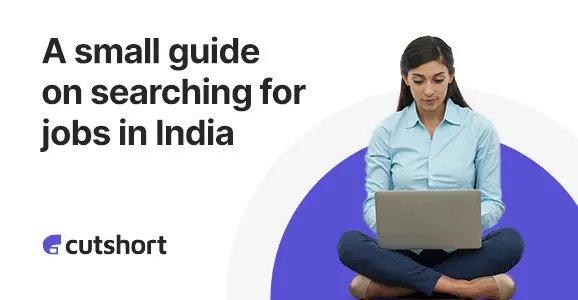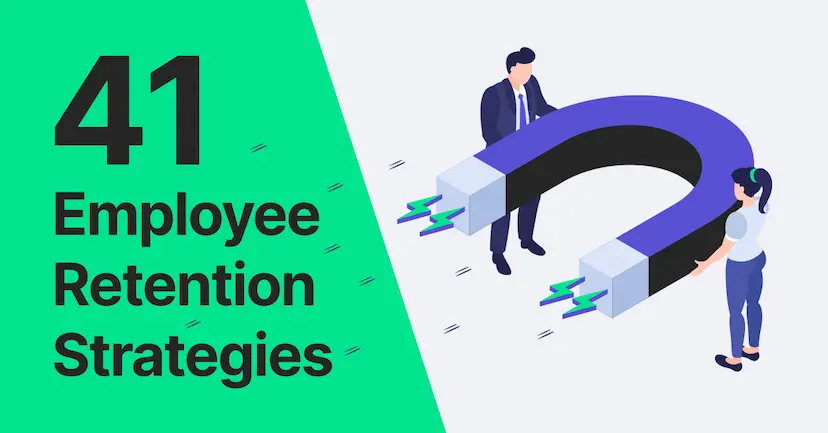Thinking about how to hire dedicated developers in India? You’re in the right place. India’s tech scene is booming. Multiple companies trust Indian talent for fulltime developer hiring. We’ll break down recruiter skill sets, smart AI tools, and the best platforms for tech hiring in India. Need more on developer interviews? Check our guides on final round interview questions and tech skills in demand for 2025.
Why Global Firms Hire Dedicated Developers in India
Let’s start with a common scene: You’re prepping for a big tech launch, but staffing gaps set off alarm bells. Sound familiar? Companies worldwide have turned to India for developer talent – and here’s why:
- Cost Efficiency: India offers specialized developer expertise for a fraction of Western rates. Recent data predicts the Indian IT outsourcing market will grow at 12.4% annually, reaching $12.47B by 2027 (Netclues report).
- Vast Talent Pool: Over 1.5 million engineers graduate yearly, creating a deep benchmark in skills like Python, React, ML, and more (Asanify).
- English Proficiency and Cultural Compatibility: India is the world’s second-largest English-speaking country. Communication flows smoothly across remote teams.
- Flexible Hiring Models: Recruiters can opt for fulltime, contract, or remote models, based on project complexity.
- Quality of Work: Indian developers often rank high for code quality, attention to detail, and commitment.
What does this mean for you? Recruiters can access global-level talent and scale teams efficiently, from startups to enterprises. Isn’t it time you tapped into this advantage?
Skill Sets Recruiters Need for Tech Hiring in India
Hiring developers in India is not just about posting jobs. Recruiters need a special skill set. Let’s uncover the top recruiter skills that’ll get you high-caliber developers in India:
- Understanding Technology Stacks: Know the difference between frontend (React.js, Angular), backend (Node.js, Python), and mobile (Android, iOS) expertise. Decipher jargon like MERN/MEAN stacks, SQL vs NoSQL, and cloud services (AWS, Azure).
- Job Profile Creation: Build clean, specific job descriptions. List must-have skills and nice-to-have technologies. Define code testing, DevOps, and SDLC experience clearly.
- Screening and Shortlisting: Leverage AI-powered ATS and resume parsers (AI Resume Scorers) to rapidly filter applicants.
- Technical Assessment: Assess core skills via HackerRank, Codility, or custom coding rounds. Analyze GitHub or StackOverflow profiles for real-world projects (Asanify tips).
- Behavioral Interviewing: Use situational and problem-solving questions. Test culture fit, adaptability, and genuine interest in your tech stack.
- Remote Collaboration: Detect familiarity with Slack, Jira, Trello, and other collaboration tools.
- Legal and Compliance Awareness: Apply NDAs, IP protection, and propose fair compensation models, whether for freelancers or fulltime hires. Understand statutory benefits, payroll taxes, and contracts as per Indian law (Rippling).
How strong is your tech hiring toolkit? Are you ready for the new wave of developer interviews using both tech and soft skills?
AI Tools to Supercharge Each Stage of Developer Hiring
AI is no longer a buzzword – it’s your secret weapon in tech hiring. Here’s how cutting-edge recruiters use AI at every hiring phase:
- Sourcing Talent: Platforms like Cutshort’s AI engine and Kula.ai auto-match candidates to your job descriptions, reducing manual sourcing. LinkedIn’s AI-powered search also offers precise talent filtering.
- Resume Screening: Use smart ATS software – like Greenhouse or other ATS Scorers – to score and filter resumes based on job-specific parameters in seconds.
- Coding Assessments: HackerRank and CodiumAI generate and evaluate coding challenges automatically, using benchmarks mapped to your tech stack’s needs.
- Interview Automation: AI interview bots (like those featured on Cutshort) conduct asynchronous video interviews, testing both communication and technical skills 24/7.
- Candidate Engagement: AI chatbots answer candidate queries, send reminders, and schedule interviews, improving candidate experience and reducing drop-offs.
- Bias Reduction: Many AI tools help control for unconscious bias by anonymizing profiles and focusing on skills-based assessments only (Matchr best AI tools).
The good news is, with AI, recruiters can build a faster, smarter, and more inclusive hiring pipeline. What do you think – is your current process AI-ready?
Step-by-Step: How to Hire Dedicated Developers in India
Let’s map the journey from need to onboarding. Here’s a streamlined process for hiring developers in India:
- Define Requirements: Specify skills, tech stack, project duration, and seniority (junior/mid/senior levels).
- Choose Hiring Model: Decide between fulltime, contract, freelance, or staff augmentation (complete breakdown here).
- Source Talent: Tap into job boards like Naukri, LinkedIn, and GitHub. Or use matching platforms such as Cutshort and Toptal for pre-vetted talent.
- Screen & Assess: Use AI-driven resume automation, then launch coding and technical tests. Review portfolios and code contributions (GitHub, StackOverflow).
- Interview Rounds: Run technical and behavioral interviews. Check English proficiency and cross-cultural collaboration.
- Reference Checks: Always verify past employers or project leads for a holistic view.
- Finalize Offers & Legal: Issue offer letters, negotiate salary, sign NDAs and IP agreements. For smooth compliance, consider an Employer of Record (EOR) partner like Asanify or use cutting-edge EOR options highlighted in Rippling.
- Onboarding: Use dedicated onboarding tools for document collection, benefits setup, and team introductions. Make sure all employment contracts meet Indian labor law standards.
Want to go deeper on tech interview tips? Explore our in-depth resources on final interview rounds or AI resume scoring.
Challenges in Hiring Dedicated Developers in India
If you’re wondering whether hiring in India is all smooth sailing, let’s get real. Here are three core challenges recruiters face, and what you can do about them:
- Finding the Right Fit: The talent pool is huge, but sorting through thousands of profiles is overwhelming. The solution? Combine AI screening and talent communities like GitHub, Stack Overflow, and Reddit to dig deep into verified code samples and community reputation.
- Compliance & Payroll Complexity: Navigating Indian labor law, PF, and tax deductions can be a maze. Partnering with compliance experts, or using EOR services such as Asanify and Rippling, can take the pain out of the process (key compliance tips).
- Cultural and Time Zone Differences: While English proficiency is high, remote work can introduce misunderstandings. Recruiters should prioritize communication clarity and overlapping work hours. Tools like Zoom and Slack help bridge cultural divides.
The future of hiring is about overcoming these hurdles with a blend of smart tech, localized expertise, and mutual respect. What’s the biggest challenge you’ve faced when hiring internationally?
The Top 5 Platforms to Hire Fulltime Developers in India (2025 update)
India’s hiring platforms are rapidly evolving – with each one offering unique value to recruiters. Here’s what you need to know about the best five:
- Cutshort.ai
Cutshort is India’s #1 tech hiring platform. Over 25,000 recruiters hired 15,000+ developers here. The platform uses proprietary AI-matching to connect you with top, pre-vetted talent (from 3.5M+ professionals), with a fast-screening experience and automated interview scheduling. Leading companies like Flipkart, Zoho, PayTM and Adobe trust Cutshort for sourcing both junior and senior developers. Recruiters can leverage their ATS tools, AI-generated JD suggestions, and employer branding options.
Key feature: Lightning-fast matching and deep talent filtering by skill, experience, and culture fit. - Upwork
This global freelancing leader connects businesses with freelancers, including experienced fulltime developers from India. Their platform supports project and hourly-based engagements, with robust filtering and candidate review systems. Upwork is best for flexible and remote assignments.
Key feature: Extensive freelancer pool with detailed client reviews and ratings. - Toptal
Toptal is renowned for its rigorous talent screening (top 3% only). If you need highly specialized or niche developers, Toptal’s vetting assures quality, making it perfect for mission-critical projects.
Key feature: Hand-selected developer talent and zero-risk trial period. - LinkedIn
India’s large professional network is accessible through LinkedIn’s powerful search features. You can scout for experienced developers, verify professional backgrounds, and post jobs for broad reach.
Key feature: Endorsements, recommendations, and rich profile data for better assessment. - Asanify
Asanify acts as an Employer of Record (EOR), managing legal onboarding, payroll, statutory benefits, and compliance for foreign companies hiring Indian developers. The service also provides premium hiring support from sourcing to onboarding – including equipment procurement and benefit management. Ideal for companies new to Indian hiring regulations.
Key feature: Rapid, compliant hiring without setting up a local Indian entity (see full breakdown).
Other platforms worth exploring: Naukri.com (India’s largest job board), GitHub (for code portfolio vetting), Freelancer.com, and HackerEarth for skill-based hackathons.
Cost to Hire Dedicated Developers in India: What to Expect?
Let’s talk numbers – the burning question for every recruiter! Indian developer rates vary by experience, location, and specialty (Netclues guide):
- Entry/Junior Developer: $15–$25/hr, or $600–$800/month (metro cities like Bangalore)
- Mid-Level: $30–$50/hr, or $1,000–$1,500/month
- Senior Developer: $60–$80/hr, or $2,000–$3,000/month
What’s driving these costs?
- City (metros > tier-2 locations)
- Skill demand (e.g., AI/ML, Cloud, Full-stack fetch higher rates)
- Seniority
- Project length and engagement model
Tip: For ongoing projects, fulltime developers are more cost-effective than short-term freelancers after the onboarding phase.
Recruiter’s Checklist for Fulltime Developer Hiring
- Define requirement and stack
- Create crystal-clear job descriptions
- Deploy AI resume screening
- Check code portfolio (GitHub, StackOverflow)
- Schedule technical and behavioral interviews (with AI tools if possible)
- Legalize offers – contracts, NDAs, and IP agreements
- Prepare onboarding (equipment, documentation, compliance)
- Foster a feedback loop – constant communication ensures smooth integration
What Makes a Recruiter Stand Out in India’s Tech Market?
The most successful recruiters master three things:
- Technical fluency: You don’t need to code, but you do need to understand the fundamentals of web/mobile/cloud stacks.
- People skills: Listen! Developers appreciate empathy, clear expectations, and detailed feedback.
- Adaptability: The market moves fast. Stay alert for new tech trends – be it AI, blockchain, or DevOps.
Here’s where it gets interesting: In India, recruiters who personalize their outreach and offer clear remote work structures see 2x the candidate response rate compared to generic mass-mailing (as seen by top hiring teams on Cutshort and LinkedIn tips).
Best AI Tools to Level Up Tech Hiring (2025 Trends)
Want to automate tedious tasks and focus on strategy? Try these:
- Cutshort AI: Matches, filters, and manages candidates with deep AI profiling.
- HackerRank, Codility: Auto-evaluate code skills and offer data-backed reports.
- HireVue: Conducts AI-driven video interviews, analyzes speech and body language.
- Fetcher: Finds and nurtures passive candidates automatically, filling your pipeline fast.
For a full list, see the Kula.ai roundup of top 16 AI hiring tools and Matchr’s 100 best AI tools for recruiters.
FAQs: Hire Dedicated Developers in India
- How much does it cost to hire developers in India?
Expect $600–$3,000 per month for fulltime developers, based on experience and city. Senior AI/ML engineers command premium rates. - Which platforms are best for hiring?
Cutshort, Toptal, Upwork, LinkedIn, and Asanify (EOR support) are top picks. Naukri.com and GitHub are also widely used. - Can I legally hire developers in India without a local entity?
Yes – use EOR services like Asanify or Rippling to manage compliance, payroll, and contracts without setting up a company. - What skills should I look for in Indian developers?
Tech stack expertise, problem-solving, communication, and adaptability. Full stack, AI/Cloud/ML, and DevOps are in highest demand right now (see top 2025 skills). - How quickly can I hire a developer?
Timelines range from 2-4 weeks (platforms like Cutshort or Toptal) to several months (traditional job boards or own sourcing). Using AI tools and recruiter support speeds things up. - What’s the difference between hiring freelancers, contractors, and fulltime developers?
Freelancers suit short-term or niche tasks; contractors fill gaps for medium duration or projects; fulltime hires integrate deeply and offer long-term value. - Do I need to offer Indian statutory benefits?
Yes, for fulltime employees. EORs like Asanify and Rippling help you meet local requirements (PF, gratuity, maternity leaves, etc). - How do I protect my IP when hiring Indian developers?
Always sign robust NDAs and IP agreements. EOR services or vetted platforms help ensure your contracts are enforceable in India. - How do I ensure time zone overlap for remote teams?
India Standard Time (IST) works well with Europe and US East Coast morning hours. Plan daily standups during shared windows and use async project management for efficient handovers.
Conclusion: Unlocking the Potential of India’s Developer Market
India’s tech talent pool is unrivaled – both in size and diversity. With modern AI-supported recruiting and smart hiring platforms, global recruiters can hire dedicated developers in India quickly and compliantly. Focus on role clarity, cultural fit, and legal best practices for the best results. Ready to find India’s next star developer? Start your search on Cutshort today!









